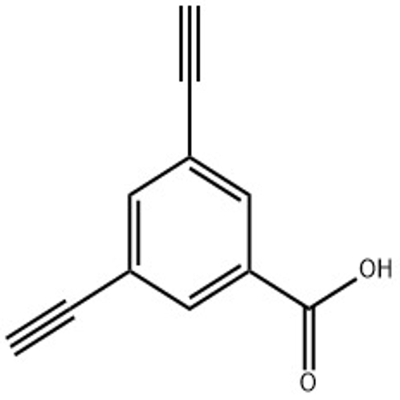-
Categories
-
Pharmaceutical Intermediates
-
Active Pharmaceutical Ingredients
-
Food Additives
- Industrial Coatings
- Agrochemicals
- Dyes and Pigments
- Surfactant
- Flavors and Fragrances
- Chemical Reagents
- Catalyst and Auxiliary
- Natural Products
- Inorganic Chemistry
-
Organic Chemistry
-
Biochemical Engineering
- Analytical Chemistry
-
Cosmetic Ingredient
- Water Treatment Chemical
-
Pharmaceutical Intermediates
Promotion
ECHEMI Mall
Wholesale
Weekly Price
Exhibition
News
-
Trade Service
Introduction
1-[4-Chloro-3-(trifluoromethyl)phenyl]piperazine, also known as CTFP, is a synthetic chemical compound that has a variety of applications in the chemical industry.
CTFP is primarily used as a catalyst for the polymerization of various monomers, such as polyethylene and polypropylene, which are commonly used in plastics manufacturing.
CTFP is also used as a catalyst in the production of various other chemicals, such as polyols, which are used in the production of polyurethanes.
CTFP has been widely studied for its ability to catalyze the polymerization of various monomers, and has been found to be particularly effective at catalyzing the polymerization of ethylene and propylene.
The use of CTFP as a catalyst in the polymerization of these monomers has been found to result in the formation of polymers with improved mechanical properties, such as higher tensile strength and stiffness.
One of the key advantages of using CTFP as a catalyst in the polymerization of ethylene and propylene is its ability to catalyze the formation of high-density polyethylene (HDPE) and high-density polypropylene (HDPE), which are commonly used in the production of plastic containers and other industrial applications.
CTFP has also been found to be effective at catalyzing the formation of low-density polyethylene (LDPE), which is commonly used in the production of plastic bags and other flexible packaging.
In addition to its use as a catalyst in the polymerization of ethylene and propylene, CTFP is also used as a catalyst in the production of polyols, which are used in the production of polyurethanes.
The use of CTFP as a catalyst in the production of polyols has been found to result in the formation of polyols with improved mechanical properties, such as higher tensile strength and stiffness.
Another advantage of using CTFP as a catalyst in the production of polyols is its ability to catalyze the formation of polyols with a high degree of branching.
This is important in the production of polyurethanes, as polyols with a high degree of branching are able to form networks with improved mechanical properties and better thermal stability.
An important aspect of the application of CTFP in the chemical industry is its ability to catalyze the polymerization of monomers in the presence of a wide range of temperatures and pressures.
This allows CTFP to be used in a variety of different polymerization processes, including solution polymerization, bulk polymerization, and slurry polymerization.
The ability of CTFP to catalyze the formation of polymers under a wide range of conditions makes it a versatile and valuable catalyst in the production of a wide range of plastics and other chemicals.
Conclusion
1-[4-Chloro-3-(trifluoromethyl)phenyl]piperazine, or CTFP, is a synthetic chemical compound that has a variety of applications in the chemical industry.
CTFP is primarily used as a catalyst for the polymerization of various monomers, such as polyethylene and polypropylene, which are commonly used in plastics manufacturing.
CTFP is also used as a catalyst in the production of various other chemicals, such as polyols, which are used in the production of polyurethanes.
The use of CTFP as a catalyst in the polymerization of ethylene and propylene has been found to result in the formation of polymers with improved mechanical properties, such as higher tensile strength and stiffness.
CTFP is also effective at catalyzing the formation of low-density polyethylene (LDPE) and high-density polypro







